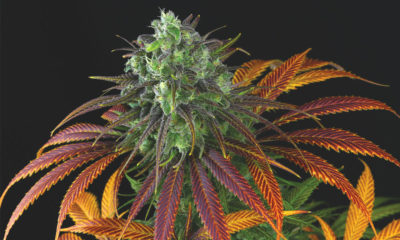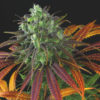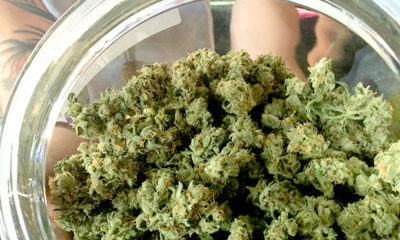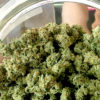
Medical
NHL Alumni to Study Medical Marijuana For Brain Injuries
Organization wants to learn more about how cannabis may be able to benefit players.
Although the use of medical marijuana is not yet accepted in the world of sports medicine (the higher-ups keep complaining that it is mostly illegal and there isn’t enough research for this to happen) that hasn’t stopped products of the old school from rising up to take charge of the situation. Now that Canada is a fully legal cannabis country, the NHL Alumni Association has decided to embark on an exploratory journey to learn more about how marijuana might be able to benefit players.
To do this, the NHL alumni has partnered with cannabis industry giants Canopy Growth, which is funding the double-blind, randomized study consisting of more than 100 retired hockey players, in an attempt to see if certain medical marijuana components are powerful enough to combat brain injuries. If the results are favorable, a second wave of research, which would also be paid for by Canopy, will be launched. Only next time around, more participants would be involved.
Unlike the embarrassing medical marijuana studies conducted in the United States — the kind where researchers are forced to use subpar government supplied samples and endure other less than suitable standards to arrive at their results — the NHL study will be a top of the line, finely tuned look into the subject of marijuana medicine.
The study will use the highest grade medical marijuana, not to mention the testing methods employed will go way beyond basic surveys and other questionnaire-based data-collection where results can be padded.
How do we know this?
Well, that’s how Milwaukee-based neurosurgeon and NHL medical consultant Dr. Amin Kassam sized up the news late last week.
“This is a crystallizing moment,” he told TSN. “We’re going to be using high-resolution imaging, biomarkers, ocular, vestibular testing. We have a big need, the right agenda and the right people.
“The NHL alumni are willing to commit their privacy and their souls to help others in the community and I think Canopy is the real deal when it comes to the medical science,” he added. “They have the science. Their facility at Smiths Falls is best in class. It’s as good a bio laboratory as you’ll find in the world. They are not growing weed in the backyard.”
The primary aspect of medical marijuana that researchers are hoping to hash out is the effectiveness of cannabidiol or CBD. For the past few years, there has been a lot of hype over how the non-intoxicating component of the cannabis plant can provide athletes with anti-inflammatory benefits. This study plans to nip this noise in the bud.
“We hear plenty of anecdotes from athletes about how cannabinoids are helping them, but we don’t have any good robust data to prove that,” said Canopy Growth Chief Medical Officer Dr. Mark Ware.
This much is true.
In fact, some scientists, like Dustin Lee, an assistant professor in psychiatry and behavioral sciences at Johns Hopkins University, revere CBD-only medicine as mostly a “new kind of snake oil in the sense that there are a lot of claims and not so much evidence.” Others say that while “there is certainly data that it has a variety of anti-inflammatory effects,” science is mostly in the dark about “whether that translates into improving human health.” So getting to bottom on the CBD craze is a crucial step in the realm of marijuana medicine, according to a report from the New York Times.
But if cannabis medicine has a shot at getting recognized for its therapeutic benefits, Canada is where it could happen. Now that the herb is legal for both recreational and medicinal application, some believe the country is poised to become a global leader in cannabis research.
The partnership between the NHL and Canopy is a relatively good indicator that it is headed in the right direction.
Unfortunately, however, the study will only examine the efficacy of CBD on neurological conditions. Researchers are not yet interested in exploring full spectrum medicine — that’s THC and all of the other 100-plus cannabinoids that play a role in how marijuana does all of the things that people say it does.
In spite of the fact that some of the latest research indicates that THC has more therapeutic benefit than CBD, Canopy’s Dr. Ware believes “this complex and multidimensional study will give us an unprecedented understanding of the interaction between cannabidiol (CBD) and the brains and behaviors of former NHL players living with post-concussion symptoms.”
Let’s hope that it does. The Centers for Disease Control and Prevention says there
The NHL study is set to get underway over the summer. Researchers say it will take up to a year to complete. So, it could be 2020 before the truth behind CBD-only medicine is revealed. The NHL alumni has not yet said whether the next study, if there is one, might include a look into whole plant medicine.
TELL US, would you like to see more cannabis acceptance when it comes to professional sports?





















